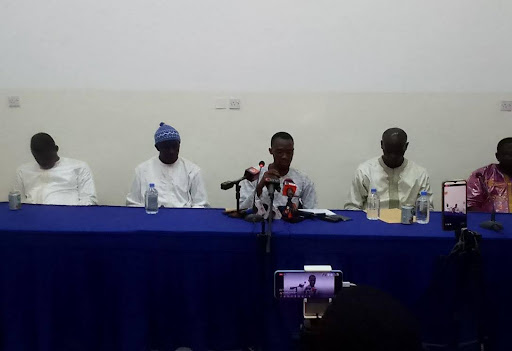By Mariama Marong
The High Court in Banjul on Thursday struck out a case brought by cement importers and traders challenging a controversial increase in levies on cement, ruling that it lacked jurisdiction to interpret constitutional provisions relating to taxation.
Justice Sonia Akinbiyi, presiding at the Banjul High Court Annexe, held that only the Supreme Court has the authority to interpret the Constitution in such matters, particularly those involving the imposition or variation of taxes and levies.
“The duty of a judge is to interpret and not to make the law,” Justice Akinbiyi said in her ruling. “In the interpretation process, the judge should be liberal and give the natural meaning of the statute where the words are clear and unambiguous. Section 127 of the 1997 Constitution is unambiguous — it reserves the interpretation of constitutional provisions in all their ramifications to the Supreme Court, save for issues involving breaches of fundamental human rights.”
The suit, initiated by a consortium of cement importers and traders, sought judicial intervention after the government raised the levy on a bag of cement from D30 to D180. The applicants had hoped to obtain declaratory relief against the hike, arguing that it was unconstitutional and arbitrary.
Their lead counsel, Kadijatou Jallow, filed a motion dated March 6, 2025, in which she argued that the High Court was competent to make a declaratory decision without necessarily engaging in constitutional interpretation. She relied on Sections 5, 127, and 132 of the 1997 Constitution, and also cited Section 31 of the Competition Act and Section 8 of the Customs and Tariff Act to support her position.
However, Counsel Sohna Jawara, representing the State, countered that the application fundamentally involved constitutional interpretation and therefore fell under the exclusive original jurisdiction of the Supreme Court, as outlined in Section 127 of the Constitution.
“Jurisdiction for constitutional interpretation is vested in the Supreme Court, except in cases involving the enforcement or protection of fundamental rights, where the High Court may intervene,” Jawara submitted. She further invoked Sections 5 and 133 of the Constitution and cited several legal authorities to argue that the plaintiffs had brought the matter before the wrong court.
Jawara urged the court to strike out the case, describing it as an abuse of process. However, Justice Akinbiyi disagreed with that characterisation, noting that while the application itself was not an abuse of process, the court did not have the legal authority to hear it.
“The suit, as constituted by originating summons, is incompetent,” the judge ruled. “The substratum of this case revolves around the interpretation of Section 149 of the Constitution, as it relates to the imposition of levies and taxes — a matter that clearly falls within the jurisdiction of the Supreme Court.”
Justice Akinbiyi concluded that the matter must be struck out on jurisdictional grounds. No pronouncement was made on the merits of the case.
The ruling now effectively ends the High Court leg of the cement tax dispute, unless the plaintiffs choose to escalate the matter to the Supreme Court, which is constitutionally empowered to rule on the legality of fiscal measures imposed by the executive. The cement importers can also choose to appeal against the decision of the High Court.
















